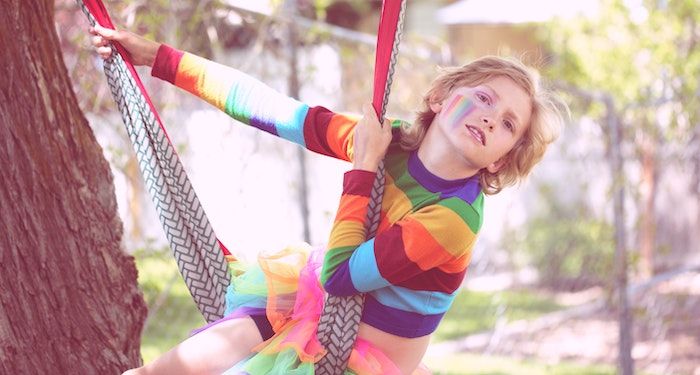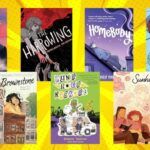
How to Pick Children’s Books About Gender
Kids can learn a lot about themselves and the world by reading books. By seeing characters experience things that they might be feeling, books can help them contextualize their experience. A lot of times, well-meaning adults know this and try to help by recommending and gifting books to kids. However, when it comes to big concepts like gender identity and expression, it’s important to make sure that the children’s books about gender you are pointing kids towards are going to be helpful. Just because a kid’s book is about gender does NOT mean it is a GOOD book about gender. It’s important to be extremely careful when recommending books so that you are not causing the child harm.
Another thing to consider is that even if you have a kid in your life who isn’t questioning or transitioning, finding good books on gender for them is still imperative. Even cis children need to be able to interact with gender, so finding good books on gender for them is a great idea. Below are a few questions you can ask yourself to ensure that the books are the best they possibly can be!
Who is the Author? What’s Their Experience With Gender?
If a kid in your life is questioning their gender and you want to find them a good book to help them discover their identity, the first step is to look for trans and nonbinary authors. Make sure you find a book by an author who shares the identity of the child if they know it, and for those kids still trying to figure it all out, a wide range of books from different trans and nonbinary authors will be your best bet.
Who is the Protagonist?
Look for books where the protagonist has a similar relationship with gender as the kid in your life. It’s also important to make sure to find protagonists who come from many different cultural identities. Because so many of the queer narratives we see are typically white, it’s really important to understand that that is not the only way to be trans or nonbinary, and when looking for children’s books about gender, it’s best to find books that follow a wide spectrum of cultures. Also, it is imperative that the characters are actual real live human beings. Not talking animals, not toys come alive: people. Having non-human protagonists only helps to “other” the kid further.
What’s the Story About?
Sometimes adults feel like they’re helping by providing stories about the hardships queer (especially trans) kids go through. However, it’s really important to find books that are happy. If the only thing the kids see is books about bullying, that’s not going to help them feel comfortable in who they are. Read through the books, and make sure that it’s a story about a kid loving themselves, and finding comfort and confidence in their identity.
It’s true that sometimes it is helpful for kids to see others coping with hardships. But, if that’s the only thing kids are seeing, it becomes harmful. Look for books that aren’t about bullying, or where the central conflict is the discovery of self. Those are going to be the books that encourage trans and non-binary kids in your life.
Who Have You Seen Recommend the Book?
Look at who blurbed the book, and who is recommending it. Are most of them trans and nonbinary? That’s a pretty good indication that the book has good material in it. If everyone recommending the book to you is cis, do some digging, research the book, and look for reviews from trans people: those are the reviews you should be trusting. Sometimes allies like to recommend books simply because it has representation, and can often forget that representation isn’t enough. It has to be a good representation. So, even if you’ve seen a book recommended everywhere, make sure to double-check that “allies” recommending it aren’t talking over actual trans people saying it’s not great.
By asking yourself these questions when choosing books for kids about gender and doing the research, you are going to be that much closer to finding the best books out there for the kid in your life. And remember: all kids can benefit from books about gender, not just kids questioning theirs.
To get started, try looking through this list of the best children’s books about gender identity!













